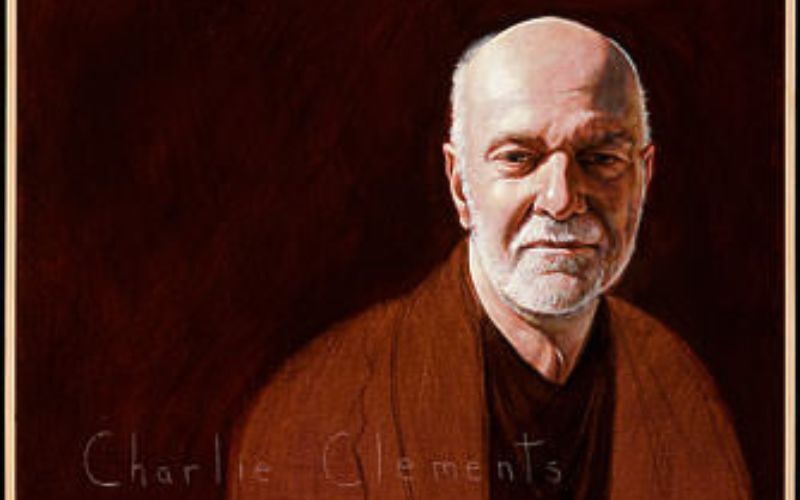War Resister, Writer, Peace and Human Rights Advocate (1945- )
Activists in the U.S. are like the “tank man” in Tiananmen Square in China. We have always had to jump in front of the ship of state to keep it on a self-correcting course. Whether the issue was slavery, labor rights, women’s suffrage, civil rights, Vietnam, Central America, or Iraq, it is the determined protests of those who will settle for nothing less than justice or peace that have altered the course of history.
The moral arc of the universe doesn’t bend toward justice by gravity.
Biography
During the civil war in El Salvador, Charlie Clements worked as a physician in rural villages that were bombed, rocketed, or strafed daily by their own government. One day a peasant asked, “Why don’t you carry a weapon like the other doctors?” Charlie explained that after Vietnam he had become a Quaker and something about the Quaker belief in non-violence. The peasant shook his head in disdain saying, "You gringos are always concerned about violence done with machetes or machine guns. I used to work on the hacienda,” and pointed in the distance. “I fed the dogs there bowls of meat and milk even when my own children were hungry. If the dogs were ill, I took them to a veterinarian, but my children died without ever seeing a doctor. You will never understand violence or non-violence until you understand the violence to the spirit from watching helplessly as your children suffer."
Charlie wasn’t always committed to non-violence. He was a Distinguished Graduate of the Air Force Academy and after training as a pilot, he volunteered for Vietnam. After nine months as a pilot in SE Asia, he concluded the war was immoral and refused to fly further missions. He was placed in a psychiatric ward and discharged with a 10% mental disability.
Charlie soon realized that same piece of paper also implied he was 90% intact and that was sufficient for acceptance to medical school. Treating patients was a great social awakening as he began to understand that exploitation, poverty, or injustice were often the underlying reasons why people were sick or injured.
In 1980 while working in a clinic for undocumented farm workers, Charlie heard stories from Salvadoran refugees about death squads killing teachers, physicians, and priests. When the U.S. began sending helicopters and military advisors there, he feared another Vietnam was unfolding. He volunteered his skills as a physician in an area controlled by the FMLN-guerrillas. Upon returning from El Salvador, Charlie testified in Congress and crisscrossed the country speaking about the brutality of U.S. foreign policy in the region. He led Congressional delegations to the region and raised millions of dollars for humanitarian assistance. Witness to War (Bantam, 1984) is the account of his journey of conscience from Vietnam to El Salvador, which was also the subject of an Academy Award (1985) winning documentary of the same title.
When the civil war ended in 1992 Charlie was a special guest the signing of the Peace Accords in Mexico City and seventeen years later he was a guest at the inauguration of Mauricio Funes, the first FMLN candidate to win the presidency. .
In 1997 as President of Physicians for Human Rights Charlie represented that organization at the treaty signing and a week later at the Nobel prize ceremony for the International Campaign to Ban Landmines (ICBL) Following an emergency human rights mission to Iraq in early 2003, he was so angered by the lies and deception of the U.S. government that he returned to full time human rights work as the president and CEO of the Unitarian Universalist Service Committee. He is now the director of the Carr Institute for Human rights at the JFK School at Harvard University. He lives in Brookline, MA with his wife, son, and daughter.
When asked what sustains him, Charlie offers a quote from the Talmud: “Do not be daunted by the enormity of the world’s grief. Love mercy now. Walk humbly now. Do justly now. You are not obligated to complete the work, but neither are you free to abandon it.”


